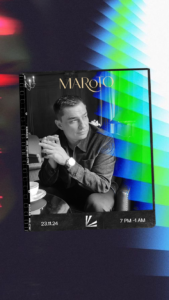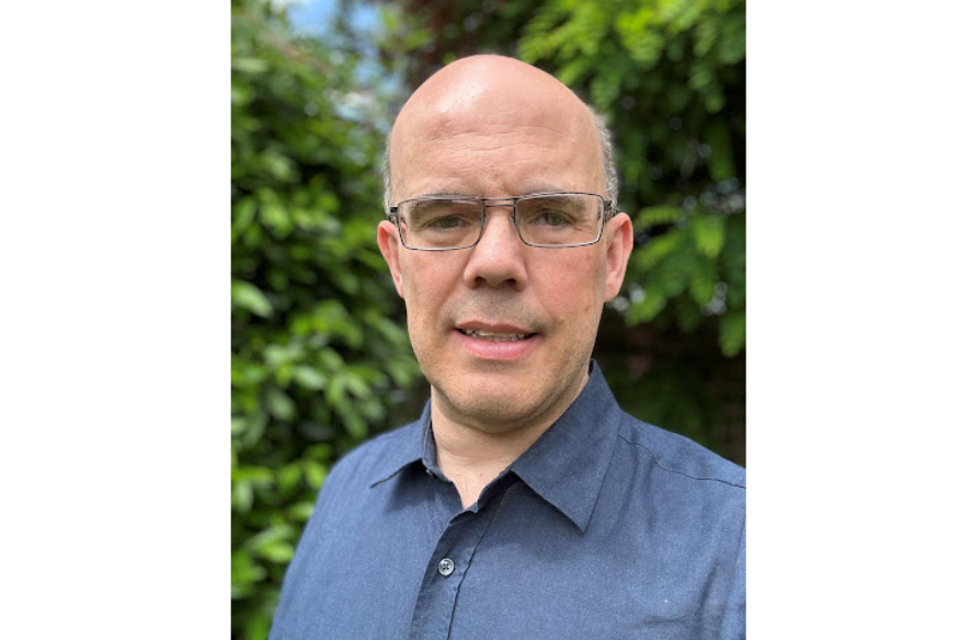John Williams, LPO/Anne-Sophie Mutter ★★★☆☆
Most hugely successful composers in a popular genre are content to be widely loved. For some, however, that’s not enough. They feel the urge to make a Big Statement, and that means going full classical. Think of Paul McCartney and his Liverpool Oratorio, or jazz musician Wynton Marsalis’s Violin Concerto.
In last night’s concert from the London Philharmonic Orchestra, we had the latest Big Statement from John Williams, the beloved film composer who has just announced his retirement from that medium at the age of 91. We heard the UK premiere of his Violin Concerto No 2, alongside numerous excerpts from his film scores, performed in new arrangements with a virtuoso solo violin part woven into the music. On stage to perform all this was the German violinist Anne-Sophie Mutter, who clearly has an old-fashioned reverence for elderly genius. In her onstage chats, she referred to Williams constantly as The Great Master, without irony.
Was the concerto masterly? It was certainly a terrific show-piece for Mutter, who was called on to be heroic and lyrical by turns, and fling off numerous cadenzas full of virtuoso fireworks. And it reminded us how many iridescent colours Williams can conjure from an orchestra. But the musical material was dispiritingly unfocused. For Williams, being Serious means summoning up the ear-crunching, somewhat dour modernism of America back in the 1950s.
True, there were little hints of jazzy “blue notes”, and the prevailing dark, searching harmonies were illumined here and there by Benjamin Britten-ish repeated harp patterns, or a sudden blaze of stark percussion straight out of late Stravinsky. And everything was beautifully shaped by the players of the LPO – all praise to harpist Sue Blair – and conductor Jonathon Heyward. But though there was, at times, an appealing film noir-ish tinge to the modernist anguish, anyone hoping for a hint of the familiar heart-on-sleeve Williams would have been disappointed.
All this could, nonetheless, have added up to something intriguing, had Williams given the material a cogent form. Mostly, however, the concerto seemed to be moving in circles, constantly launching off on a promising new development, only to peter out in yet another angular lament or burst of strenuous virtuosity. It would have made twice the impact at half the length.
If nothing else, at least, the concerto whetted our appetite for the lyrical warmth of Williams’s film scores. Excerpts from four were promised, but Mutter, generous as always, gave us four more as encores. Some, such as Hedwig’s Theme from Harry Potter, were familiar; others, from The Adventures of Tintin and The Long Goodbye, less so. When Williams’s newly composed arrangements called on Mutter to be simply lyrical, the music’s beauty shone out; when he asked her to gild the lily with virtuoso complexity, it was often obscured. The closing performance of Leonard Bernstein’s brilliantly concise and cogent score for the 1954 film On the Waterfront surely wasn’t intended as a rebuke to Williams’s garrulousness and lack of focus – but it was hard not to hear it that way. Ivan Hewett
No further performances

Jenůfa, LSO/ Rattle, Barbican ★★★★☆
One of the projects that could have been lost to London when Simon Rattle moved from his too-short time as music director of the London Symphony Orchestra to the Bavarian Radio Symphony Orchestra was his characterful series of Janáček operas in concert performances. This has already produced a winning recording of a semi-staged The Cunning Little Vixen and a performance of Katya Kabanova (shortly to be released).
Fortunately the annual project is continuing in the new era, now with Rattle returning as Conductor Emeritus, and this spectacular, committed account of Janáček’s great opera drew a packed hall which hung on every note of the superb score. The cast was not quite as originally planned: the Jenůfa of the moment, Asmik Grigorian, who sang in Covent Garden’s recent production, had withdrawn; we thus had the benefit of a less familiar voice, Agneta Eichenholz, as the tortured central character of Janáček’s tale of an oppressive society who will condemn her for conceiving a child outside marriage.
Tense, unsurprisingly nervy at the start, Eichenholz blossomed with a shining, clear top range that rang out in her Act Two prayer, though she always seemed slightly more deliberate than Rattle wanted. She is at the mercy of disapproval from her stepmother the Kostelnička. In this fiercely demanding role, Katarina Karnéus was, like several of the cast, firmly bound to reading the score, but managed some electrifying climaxes of rage and self-loathing as she takes Jenůfa’s new-born child, drowns it, and finally admits to the murder.
Rampaging on stage with total confidence, Nicky Spence as her boorish husband-to-be Števa was gripping and vividly projected. He has sung both this role and that of Laca, the ardent, awkward tenor who uneasily ends up with Jenůfa. As it happens the Laca in this performance, the excellent Czech tenor Aleš Briscein, has also sung Števa. But here they were ideally suited to their roles, though restricted by the very narrow platform on which all had to make their entrances and exits: when Laca brutally slashes Jenůfa’s face with a knife in a moment of fury at the climax of Act One, they were on opposite sides of the stage. Carole Wilson as the grandmother and Claire Barnett-Jones as the herdswoman and Barena offered solid support, and there was a sharp-etched, bright cameo from Erika Baikof as Jano.
Janáček wrote the opera over a long period of time between 1894 and 1903, revising it later in the decade, and it’s often been observed that the first act, with its cheerful folk-inspired choruses, is in a different idiom from the second and third acts. But here it was woven into the same cloth; the generously over-large London Symphony Chorus (with Simon Halsey returning as chorus master) complementing the orchestra. Rattle left nothing to chance, cueing the singers constantly, moving the music on, and creating a shifting tapestry of rhapsodic haze from the strings combined with fierce impact from wind and brass. The London Symphony Orchestra, led by Benjamin Gilmore, was on absolutely impeccable top form, with him all the way. Nicholas Kenyon
Again on Jan 14. Recorded for future broadcast on Marquee TV from Feb 8

Bournemouth Symphony Orchestra Lighthouse, Poole ★★★★☆
Musical romanticism comes in many shades, as this stirring concert from the Bournemouth Symphony Orchestra reminded us. First, we were offered the picturesque variety in Elgar’s overture In the South, where wild Italian landscapes and scenes of derring-do from long ago are evoked. Then came the sort where whiffs of sulphur are mingled with martial valour and dreamy reverie, courtesy of Liszt in his Second Piano Concerto. Finally came Brahms’s Second Symphony, described by some as sunny, by others as autumnal, and by Brahms himself as so sad the pages of the score should be lined in black.
All this needed a conductor able to persuade an orchestra to conjure all these different shades, and fortunately the BSO had one in the shape of young Briton Alpesh Chauhan. He launched Elgar’s piece with exactly the breathless excitement it needs, and his intelligent way of pacing the music made one super-aware of a wonderful paradoxical quality about the piece. When it evokes the Italian landscape Elgar had in front of him while composing, the music is filled with nostalgia. When it evokes battles from long ago, the music jumps into the present tense. The battles seem to be happening now, right in front of us.
Then on to the stage for Liszt’s concerto came the elfin, bespectacled figure of pianist Pavel Kolesnikov. You’d expect such a figure to produce a perfect limpid tone in the lyrical passages, and so he did, making the melody float out effortlessly from the left-hand accompaniment like a ripple on a lake. What was startling was the way Liszt’s virtuoso octaves emerged so thunderously from under his figures, and with so little appearance of effort.
Part of the fascination of this piece is that you’re never sure whether the hellfire moments are serious or ironic, and that uncertainty was especially acute in Kolesnikov’s sly, knowing performance. At one point, he thundered up the keyboard and suddenly stopped dead – but with a nicely judged pause, hand thrown up in a fine imperious gesture. If you have to go down to Hell, go down in style.
After all this brimstone, Brahms’s symphony was bound to appear a little muted. But Chauhan wasn’t content to let us slip into autumnal regret; he wanted to show that the music is in its way as turbulent as the other two pieces. He achieved it with a much more marked tempo flexibility than one normally hears in this piece.
Often, this paid dividends, especially in the first movement where the unexpected yearning horn solo seemed especially inconsolable. Sometimes, as in the innocent country dance of the third movement (the lilting melody beautifully played by oboist Edward Kay), it got in the way of the music’s natural flow.
But he handled the subtly graded acceleration towards the final joyous peroration brilliantly. Chauhan is determined to take nothing for granted, which is a great thing, but he could leave more to the musicians’ own musicality. Ivan Hewett
Hear this concert on BBC Radio 3 on Friday March 1 at 7.30pm

Ian Bostridge, Wigmore Hall, London W1 ★★★☆☆
Britain’s favourite tenor is now nudging 60 but the packed Wigmore Hall and the tingle of anticipation for this recital showed his fans are still as adoring as ever. Bostridge was on his favourite musical territory: he offered the final song-set by Franz Schubert, composed shortly before the composer’s death in 1828, Schwanengesang (Swansong) is hard to bring off because it is divided disconcertingly between songs of terrifying supernatural depth, and others of charming yet heartbreaking simplicity, with no interlinking narrative to ease the transition between the two.
Conditions weren’t ideal: the scheduled accompanist, Alexander Melnikov, had pulled out at very short notice; and Bostridge seemed to have a cold. But the pianist Saskia Giorgini was a more than adequate replacement, and as we soon discovered Bostridge’s special appeal remains as potent as ever. In the second song, a warrior dreams of his distant beloved and at the end has a presentiment of his own death. Bostridge filled the last words “Gute Nacht!” with an extraordinary quality – bitter, regretful and resigned all at once. Later came Resting Place, where the singer seems to be in a wild landscape of thundering rivers and raging storms. But Bostridge’s strange gauzy tone, as if his voice were cloaked, told us the truth the song only reveals later — that the resting place for this incurable wanderer isn’t a rock, it’s an immovable sense of grief.
Moments like this reminded us what an intelligent singer Bostridge is. The problem is that these flashes of illumination were dwarfed by an overall feeling of difficulty and oppression. Yes, art-song is a cruelly difficult form and even its greatest interpreters reveal a sense of strain at times. But with Bostridge, that strain is almost all one feels. Pure enjoyment in the act of singing, which ought to be at the root of any recital, is missing. That, as much as the romantic sentiments of the songs, explains his anguished stage presence, constantly turning from us to gaze at the piano’s innards, or gripping its sides as if he’d just run a marathon.
Not once did Bostridge smile — neither literally or vocally — which felt odd in the more innocent, charming songs. His absorption in the struggle meant that Bostridge’s eye-contact with his pianist was also minimal; unsurprisingly, she too seemed somewhat on edge.
Musically more rewarding was Saskia Giorgini’s performance of Liszt’s six Consolations, which came as something of a relief. It glowed with an easy, natural musicality that elsewhere was in far too short supply. IH

Les Arts Florissants, Wigmore Hall ★★★★☆
In many major cities, music is synonymous with New Year celebrations. The most famous of these festivities must be Vienna’s great institution of the Neujahrskonzert, where waltzes flow from the Vienna Philharmonic like Sekt from popping bottles. New York’s Metropolitan Opera has taken to opening a major new production on New Year’s Eve, this season Carmen directed by Carrie Cracknell. Berlin boasts enough concerts during these days to fill a month in many other cities. But London is lagging behind, a reminder of its dwindling status as one of the world’s musical capitals.
Thank heavens, then, for the Wigmore Hall, which stayed open between Christmas and New Year, offering a typically serious and sober programme of chamber-sized events. This compact New Year’s Eve concert with members of Les Arts Florissants drew a capacity audience, disproving again what Britain’s cultural apparatchiks would have us believe about demand for classical music.
As a musical state-of-the-nation snapshot, it was also telling that where Vienna and New York saw their most celebrated ensembles in action at New Year, London got two countertenors, a pair of violinists, a cellist and a harpsichordist (also playing the organ). Not just any harpsichordist, mind you: this was William Christie, the American-born, French- domiciled doyen of period performance, who’ll turn 80 in December. But big international ensembles such as the full complement of Christie’s Les Arts Florissants (not to mention international symphony orchestras) think twice these days before coming to Britain.
A waltz- and habanera-free zone, this was hardly an upbeat celebration, yet in the circumstances that was maybe fitting. Medea’s plight formed the centrepiece of the Italian Baroque programme, and the countertenor Carlo Vistoli brought Antonio Caldara’s multi-movement cantata Medea in Corinto to vivid life. Supplying almost expressionistic intensity at times, even in the “rage aria” and blood-curdling conclusion Vistoli never lost sight of the musical shape, although more verbal relish would have been welcome. Christie provided harpsichord flourishes to evoke the scattering of limbs, but this was a tour de force from everyone.
Hugh Cutting brought his slightly more resinous countertenor to Vivaldi’s cantata Cessate, omai cessate (“Cease, now cease”), another tale of unhappy love. A mix of bowed and pizzicato string-playing lends a halo to its extraordinarily beautiful central aria, and the musicians and singer alike were virtuosic in its finale.
With Vistoli’s voice slightly purer in tone, the two countertenors blended ideally in a series of duets by Agostino Steffani, Giovanni Bononcini and Handel. Cue more grief, though there was welcome respite in the interspersed instrumental pieces, of which Giovanni Battista Fontana’s Sonata settima a doi violini was a highlight, its uncoiling melodies and organ accompaniment supplying balm. To open, there had also been the delicious, syncopated lightness of Monteverdi’s Damigella tutta bella; and at the end of the concert the duet In braccio dei contenti (“In contenment’s embrace”) from Vivaldi’s wedding serenade Gloria e Imeneo lifted the spirits. John Allison
The Wigmore Hall’s season continues; wigmore-hall.org.uk
Broaden your horizons with award-winning British journalism. Try The free for 1 month, then enjoy 1 year for just $9 with our US-exclusive offer.










